
ADB’s Involuntary Resettlement Safeguard Requirements_Uzbek Version
This course will run through the substantive and procedural requirements to ensure that borrowers and ADB staff abide by the involuntary resettlement principles of the 2009 Safeguard Policy Statement. The course discusses the triggers and scope for applying involuntary resettlement requirements, the types of displacement and displaced persons, and entitlements, assistance and benefits for displaced persons.

ADB’s Involuntary Resettlement Safeguard Requirements_Russian Version
This course will run through the substantive and procedural requirements to ensure that borrowers and ADB staff abide by the involuntary resettlement principles of the 2009 Safeguard Policy Statement. The course discusses the triggers and scope for applying involuntary resettlement requirements, the types of displacement and displaced persons, and entitlements, assistance and benefits for displaced persons.
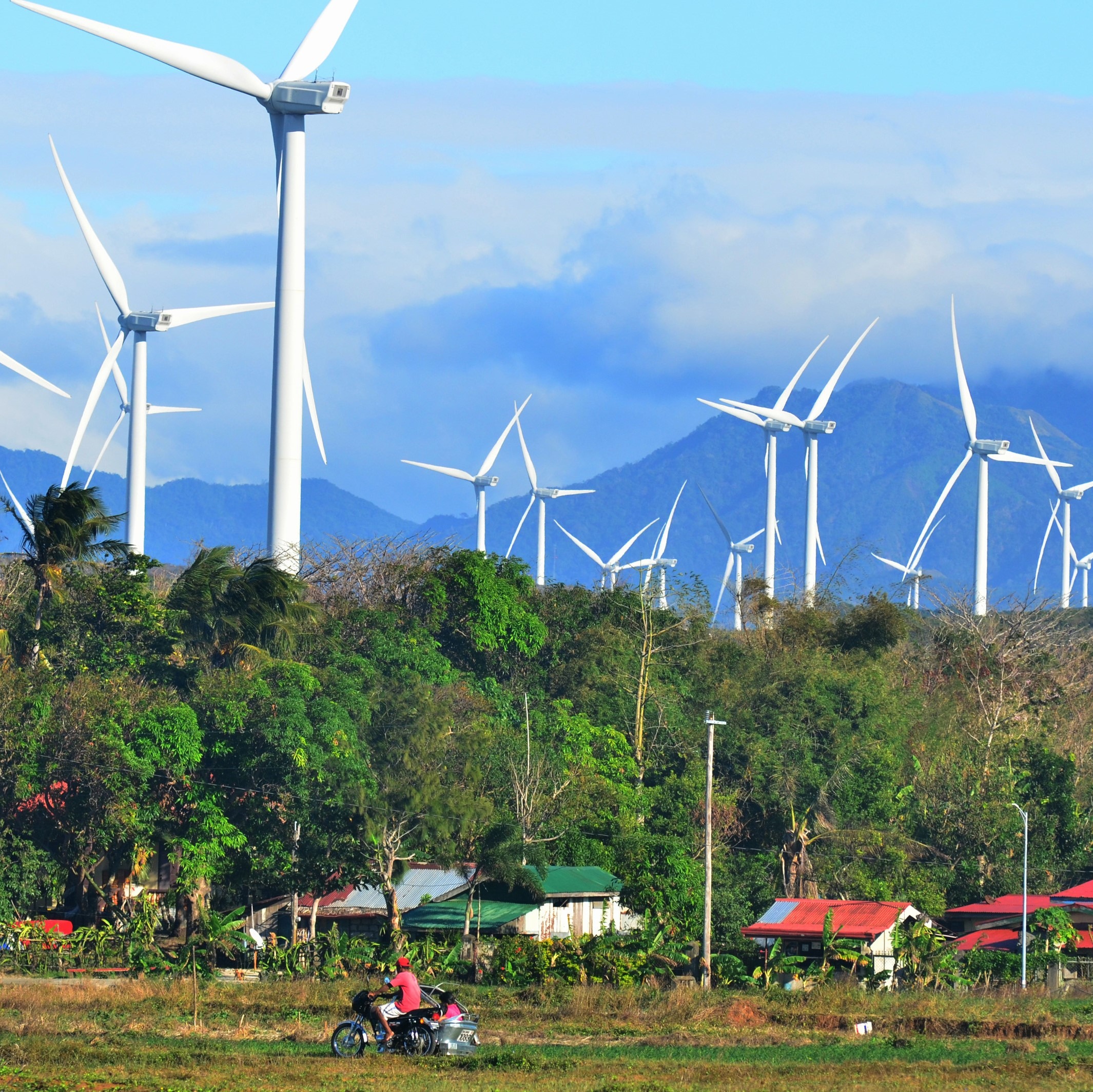
ADB’s Environment Safeguard Requirements
This course aims to provide stakeholders an overview of the 2009 Safeguard Policy Statement, with specific focus on environment safeguard requirements. Learners will be guided on procedural and substantive requirements for environmental assessment and management planning. Links to useful resources and templates will also be provided.

ADB’s Indigenous Peoples Safeguard Requirements
This course aims to give an overview of the principles, objectives, scope and triggers of ADB’s Indigenous Peoples safeguards. It will help learners determine when and what circumstances would ADB’s Indigenous Peoples safeguards be applied and the key requirements expected from borrowers/ client in designing, implementing and monitoring projects. More importantly, it will guide learners through the general and specific procedural and substantive requirements to ensure that projects ADB finances fosters full respect for and benefit Indigenous Peoples’ communities and ensure that they will not suffer adverse impacts as a result of a project.
This course is open for external stakeholders.

ADB’s Involuntary Resettlement Safeguard Requirements
This course will run through the substantive and procedural requirements to ensure that borrowers and ADB staff abide by the involuntary resettlement principles of the 2009 Safeguard Policy Statement. The course discusses the triggers and scope for applying involuntary resettlement requirements, the types of displacement and displaced persons, and entitlements, assistance and benefits for displaced persons.
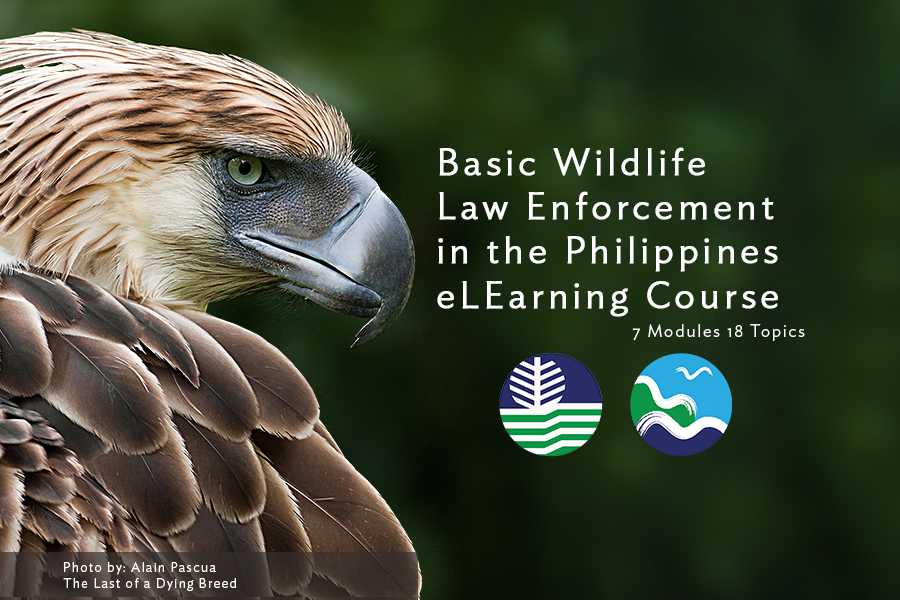
Basic Wildlife Law Enforcement Training Course (DENR and WEOs) (Environment)
This comprehensive course comprises 7 modules and 18 topics covering Philippine biodiversity, wildlife crimes, relevant policies, identification and handling of traded and threatened species, permits, and step-by-step guidance on Substantive and Procedural Laws.
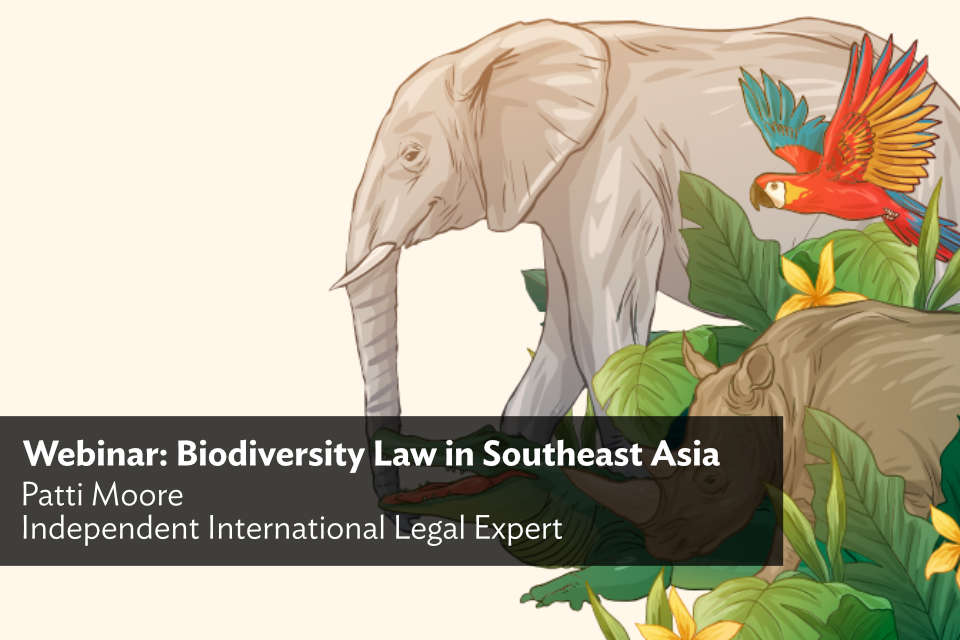
Biodiversity Law in Southeast Asia
This lecture contains an overview on biodiversity law in the ASEAN region by Patti Moore, one of the most experienced environmental lawyers in the region.
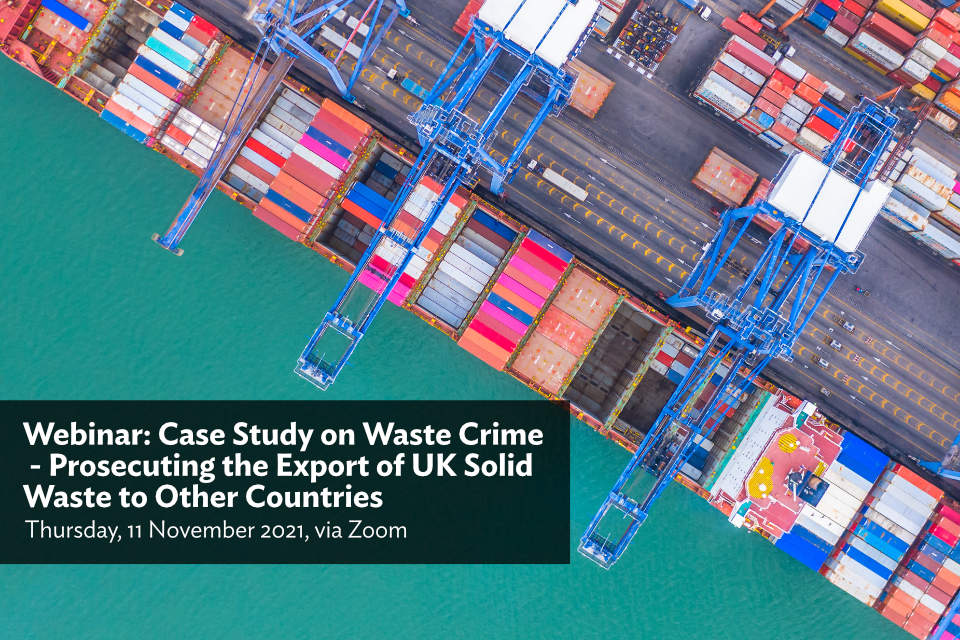
Case Study on Waste Crime - Prosecuting the Export of UK Solid Waste to Other Countries
In July 2021, Biffa Waste Services Ltd was fined £1.5 million for breaking export law, in what the judge called “reckless, bordering on deliberate.” Biffa’s latest breaches of export law uncovered by the Environment Agency involved rolling contracts to send vast amounts of waste to India and Indonesia. We will hear from Howard McCann, the barrister who handled the case, about this successful prosecution and the international cooperation that made it possible.

Coastal Resilience through Integrated Nature-Based Solutions
This course aims to share knowledge and promote a mindset shift to mainstream integrated nature-based solutions in coastal resilience. The course presents best practices and demonstrated benefits of integrating grey and green infrastructure to protect coastal zones from climate change and disaster risks, with the purpose of helping ADB and DMCs staff identify resources and practical approaches to integrate nature in future coastal resilience investments.
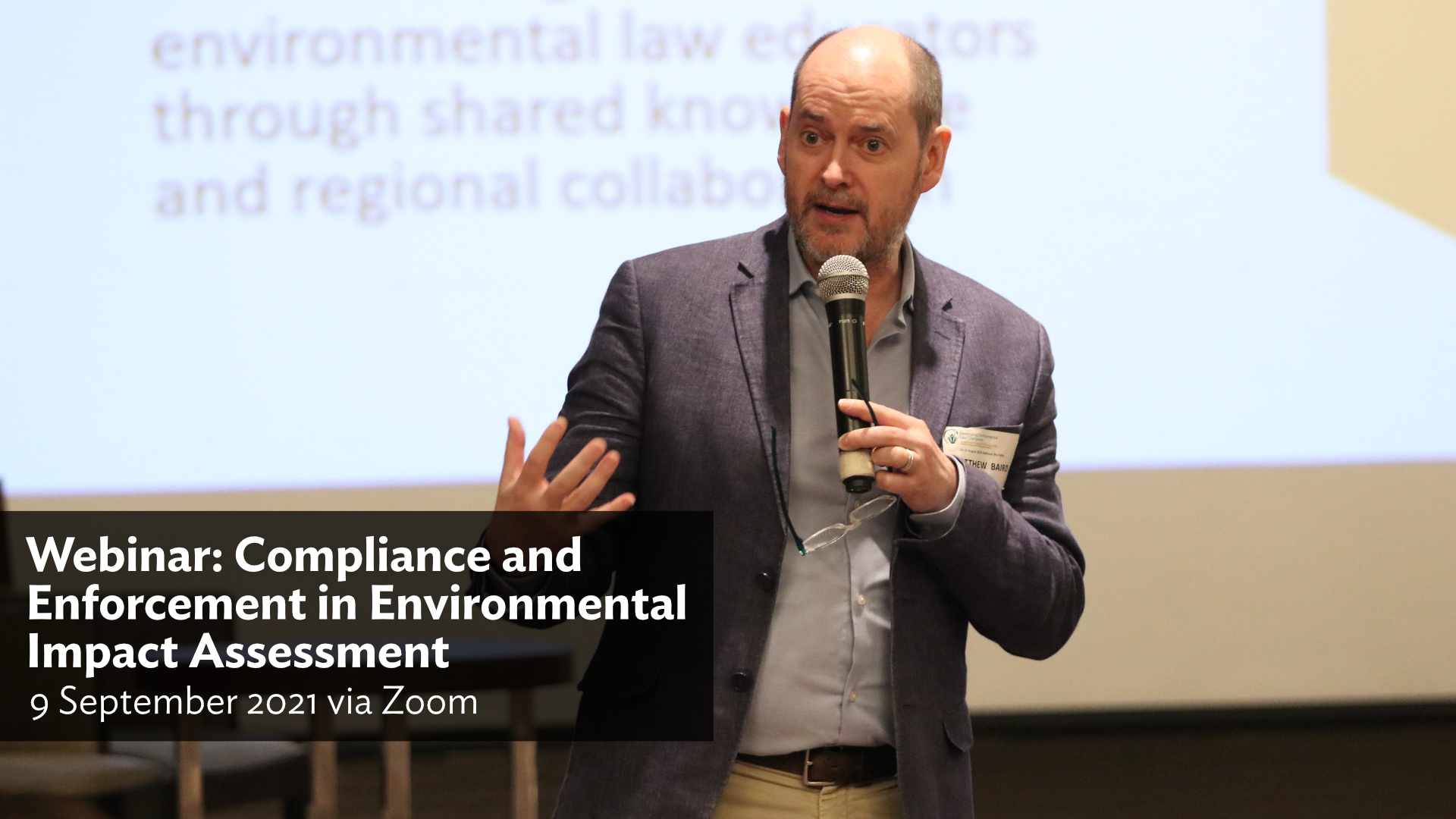
Compliance and Enforcement in Environmental Impact Assessment
This webinar follows the previous webinar on Environmental Impact Assessment Processes in South-East Asia.
This webinar on environmental enforcement and compliance in Asia updates participants on the work of the IAIA Enforcement and Compliance Group and the important work of EIA Consultant Cheryl Wasserman and the IAIA.
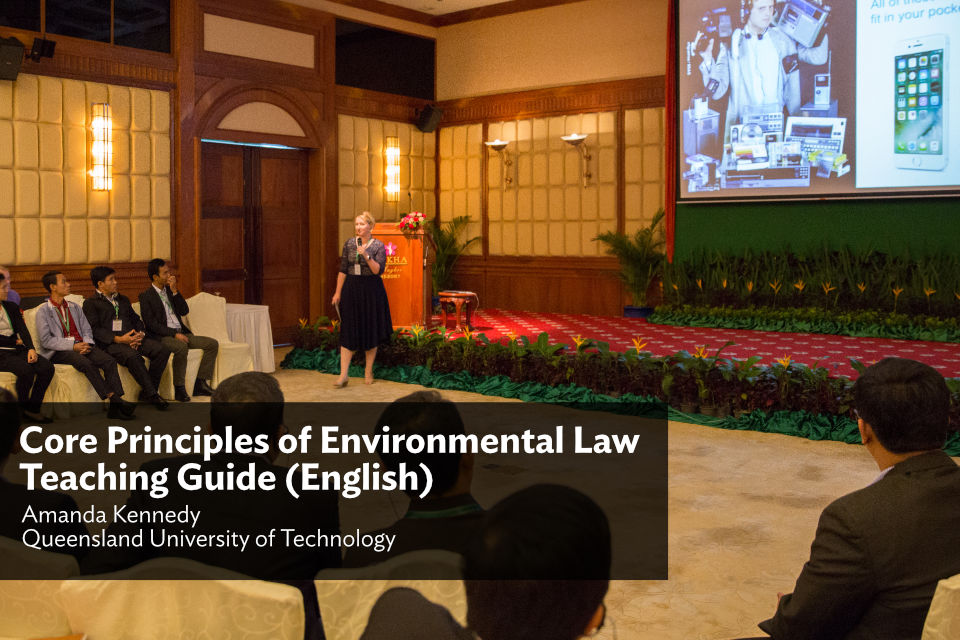
Core Principles of Environmental Law Teaching Guide (English)
This eLearning resource package contains more than 10 hours' worth of content on the core principles of environmental law, which were identified by environmental law teachers across the Asia as resources they need to enhance their teaching.
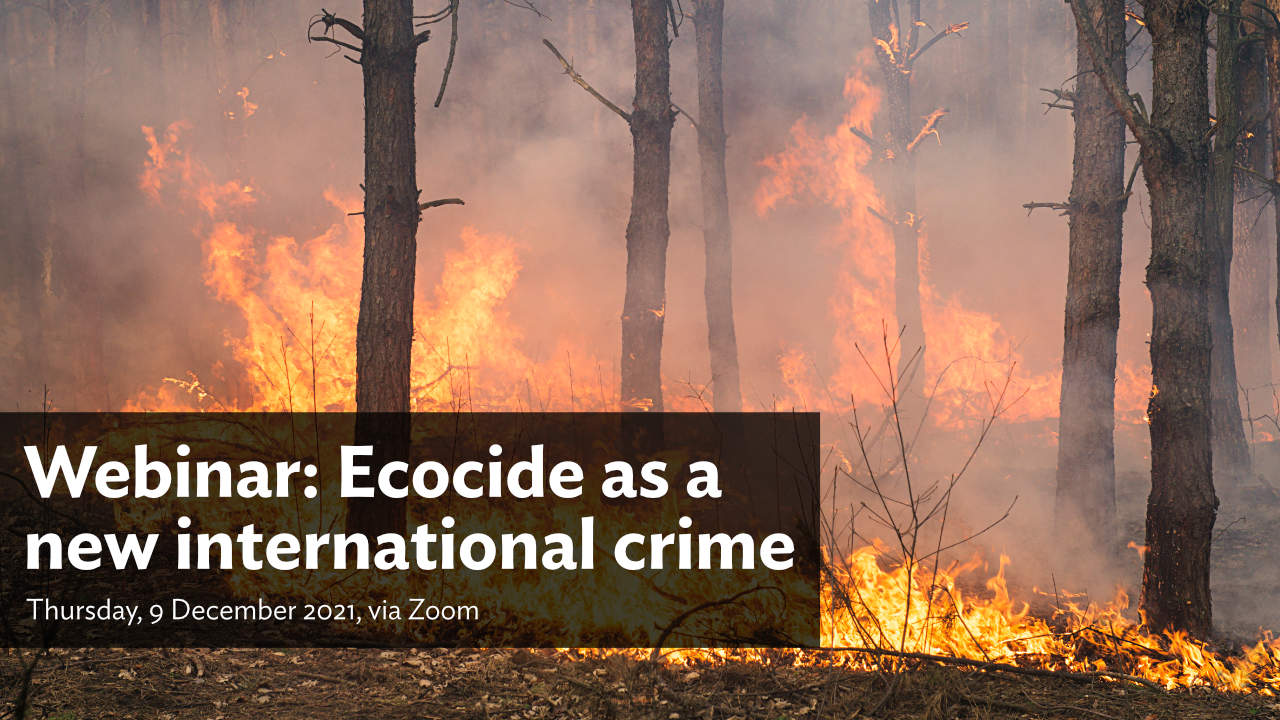
Ecocide as a New International Crime
For the first time in the Asia-Pacific region an expert panel will consider the proposed definition for the crime of ecocide.
The Independent Expert Panel for the Legal Definition of Ecocide, chaired by barrister and author Philippe Sands QC (UK) together with UN jurist and former prosecutor Dior Fall Sow (Senegal), was convened in late 2020 at a powerfully symbolic moment, 75 years after the terms “genocide” and “crimes against humanity” were first used at Nuremberg.
Commissioned by the Stop Ecocide Foundation, an expert drafting panel of 12 highly renowned international criminal and environmental lawyers from around the world has just concluded six months of deliberations. The result: a legal definition of “ecocide” as a potential 5th international crime, to sit alongside genocide, crimes against humanity, war crimes and the crime of aggression.
The proposed definition of Ecocide is available on the newly launched Ecocide Law website, an academic and legal resource hub co-managed by the Stop Ecocide Foundation and the Promise Institute for Human Rights at UCLA School of Law.
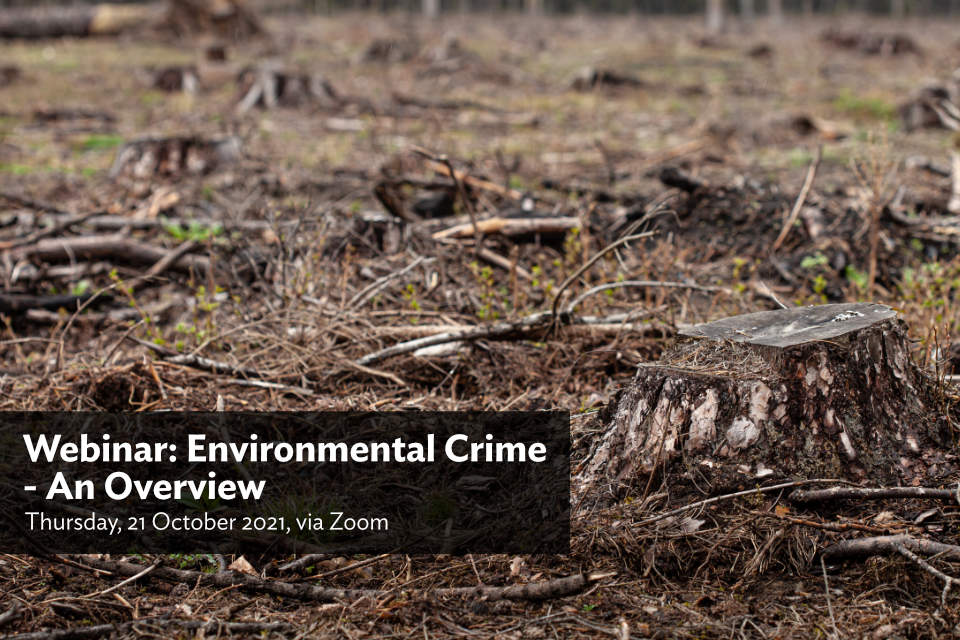
Environmental Crime - An Overview
Experts provide an overview of environmental crime issues and the challenges of dealing with and prosecuting transnational environmental crime.
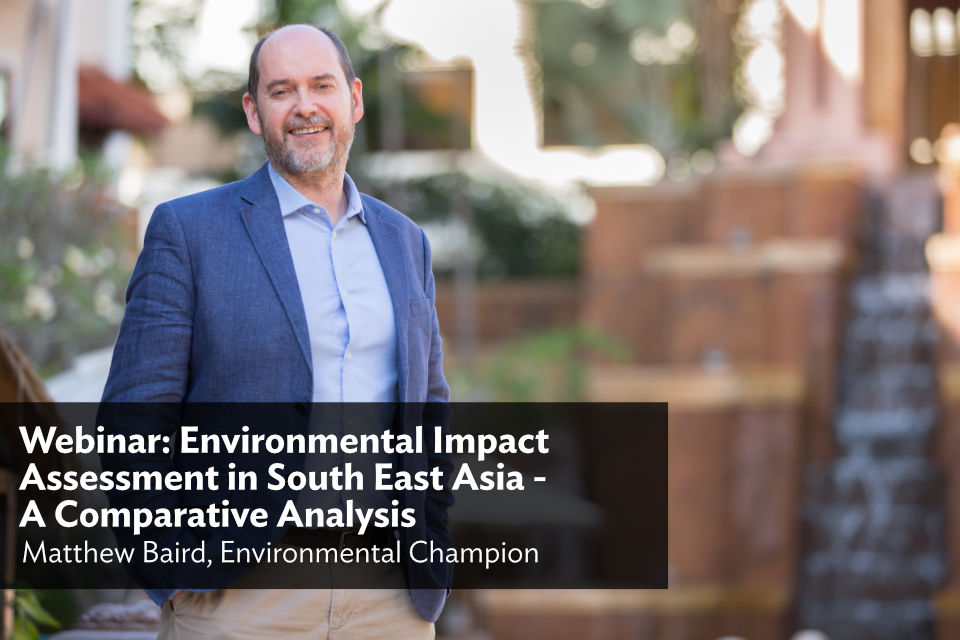
Environmental Impact Assessment in South East Asia - A Comparative Analysis
In this webinar, Matthew Baird discusses Environmental Impact Assessment in South East Asia, and examines environmental and social safeguards through the EIA process looking at the ten ASEAN member states.
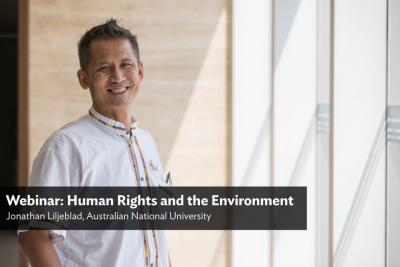
Human Rights and Environment
This webinar is a special in-depth session with Jonathan Liljeblad on Human Rights and the Environment.
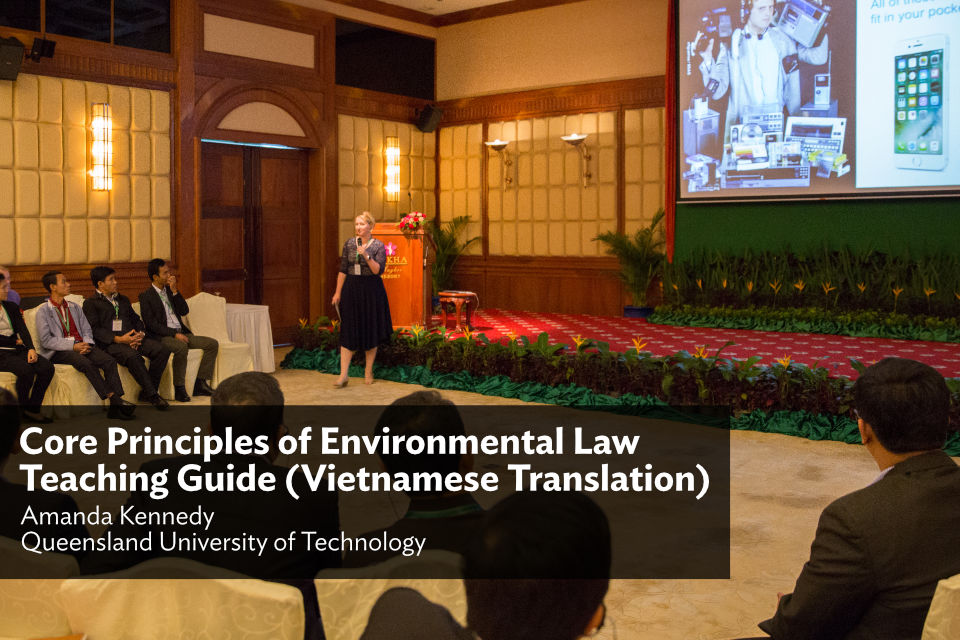
Hướng dẫn Giảng dạy những Nguyên tắc cốt lõi trong Luật Môi trường
Gói tài nguyên học tập trực tuyến này chứa hơn 10 tiếng nội dung về những nguyên tắc cốt lõi của luật môi trường. Đây là nguồn tài nguyên được các giảng viên về luật môi trường trên khắp châu Á đánh giá là cần thiết để nâng cao chất lượng giảng dạy của mình. Gói tài nguyên này bao gồm nhiều tài liệu đa dạng được thiết kế chủ yếu phục vụ giảng dạy trực tiếp, nhưng có thể tùy chỉnh sao cho phù hợp với giảng dạy trực tuyến.
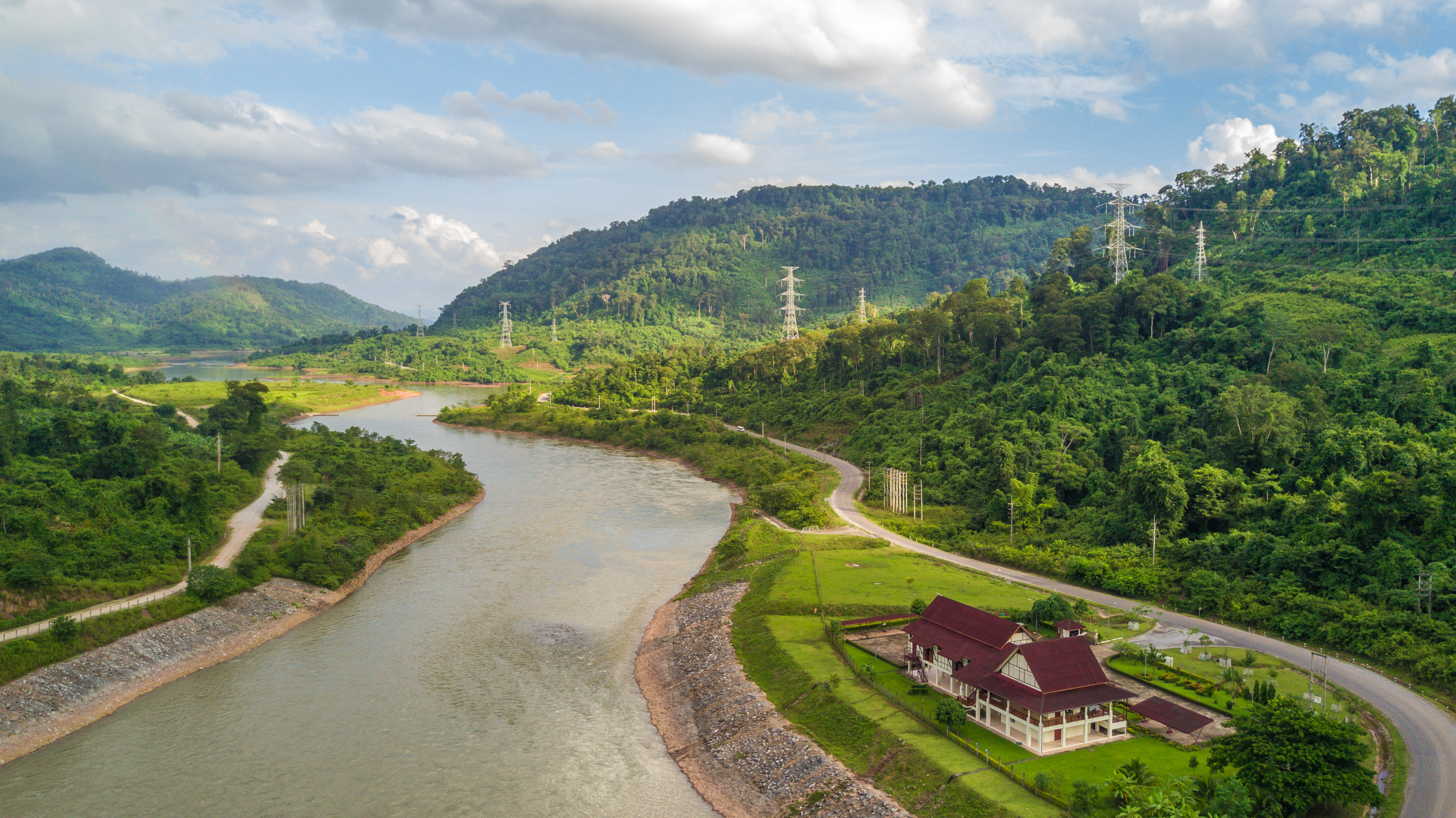
Overview of the Safeguard Policy Statement
This course provides a brief on the 2009 Safeguard Policy Statement. It introduces the objectives, scope and triggers for the three safeguard areas – environment, involuntary resettlement, and Indigenous Peoples. The module also briefly discusses the common safeguard requirements which all projects would need to comply with. This Overview is a prerequisite to the three safeguard eLearning modules on (i) environment safeguard requirements; (ii) involuntary resettlement requirements, and Indigenous Peoples safeguard requirements.

Teaching and Research of Environmental Law in the Asia Pacific Region
This webinar is a lecture on the teaching of Environmental Law in the context of the ASEAN region by Emeritus Professor Ben Boer.

Wildlife Law Enforcement in the Philippines: Training Course (Environment)
This general course on Wildlife Law Enforcement in the Philippines comprises 4 modules and 8 topics that cover: Philippine biodiversity, wildlife protection laws and policies, live and online illegal wildlife trade, and roles of government agencies.
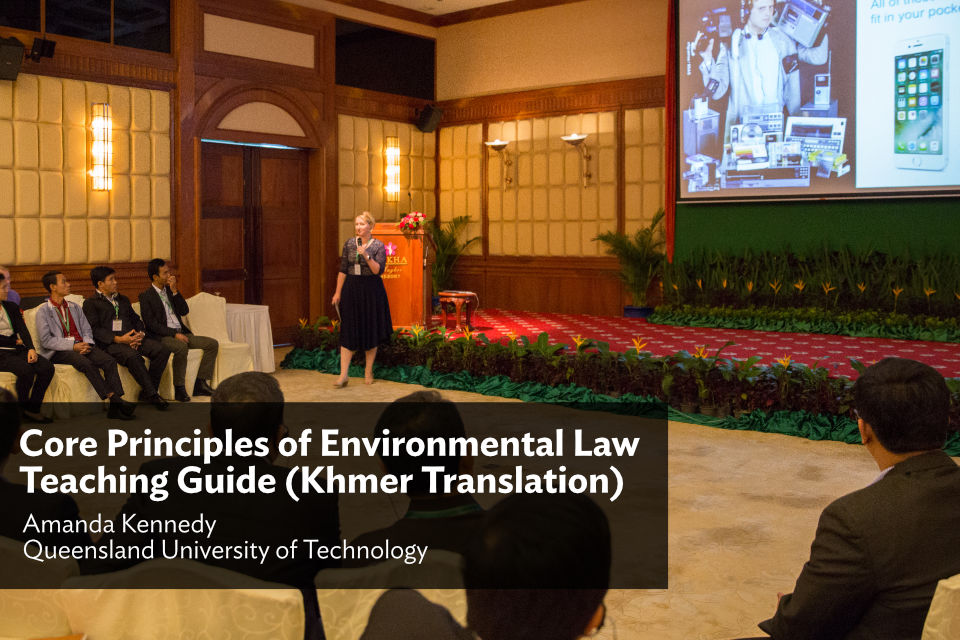
គោលការណ៍ស្នូលនៃមគ្គុទ្ទេសក៍ណែនាំសម្រាប់ការបង្រៀនអំពីច្បាប់បរិស្ថាន
កញ្ចប់ធនធានសម្រាប់ការរៀនសូត្រតាមប្រព័ន្ធអេឡិចត្រូនិកនេះ រួមមានមាតិកាជាង១០ម៉ោង
អំពីគោលការណ៍ស្នូលនៃច្បាប់បរិស្ថាន ដែលគ្រូបង្រៀនច្បាប់បរិស្ថាននៅតំបន់អាស៊ីបានកំណត់រកឃើញថាជាធនធានដែលពួកគេត្រូវការដើម្បីជួយជម្រុញដល់ការបង្រៀនរបស់ពួកគេ។ កញ្ចប់នេះរួមមានសម្ភារៈមួយចំនួន ដែលភាគច្រើនត្រូវបានរៀបចំឡើងសម្រាប់ការបង្រៀនលក្ខណៈជំនួបផ្ទាល់ ប៉ុន្តែ ក៏អាចយកមកកែសម្រួលសម្រាប់ការបង្រៀនតាមអនឡាញផងដែរ។ ប្រធានបទខាងក្រោម ត្រូវបានគ្របដណ្តប់នៅក្នុងមេរៀនរយៈពេល១ម៉ោង ដាច់ដោយឡែកពីគ្នា៖